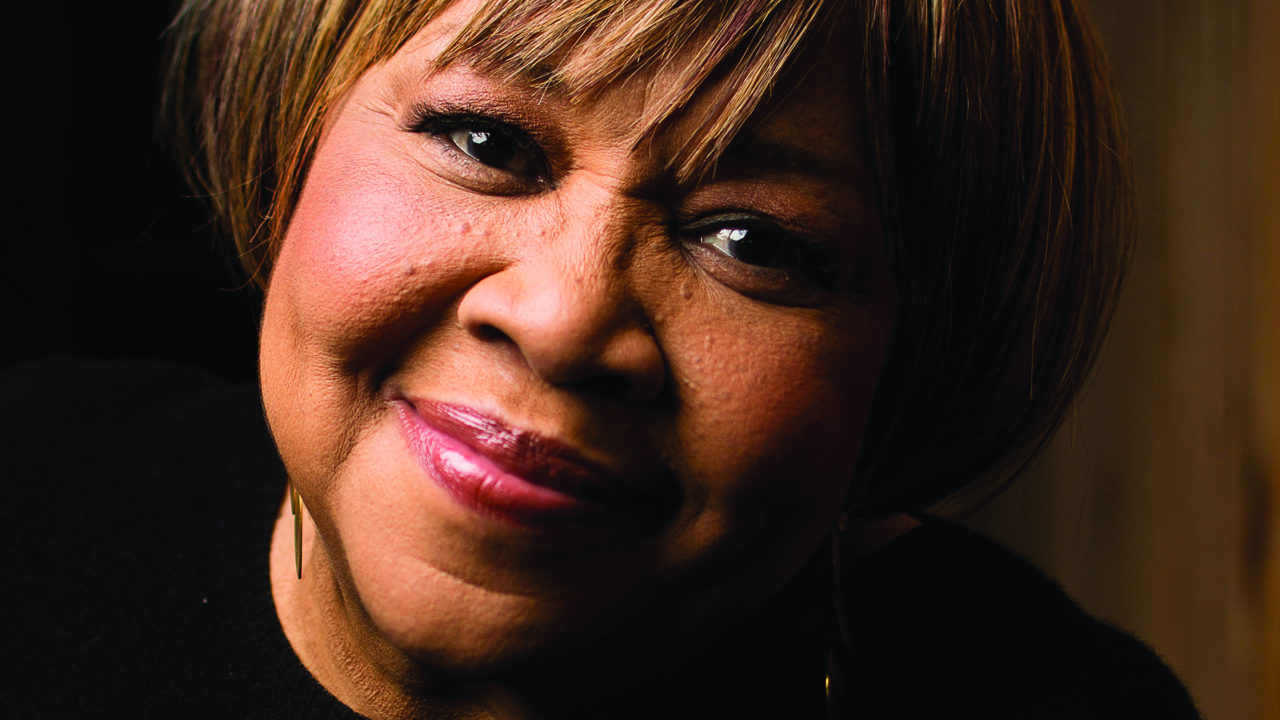You can trust Louder
The lady looks skyward on songs by indie rock disciples.
THERE’S A MOMENT during the song Jesus Lay Down Beside Me when it hits you that things are a little knottier than you first thought. As a swirl of delicate, echo-laden guitar creates an atmosphere of smoky tranquillity, the title lyric rolls off Mavis Staples’ tongue as if it were a standard-issue plea for divine reassurance.
Then you listen deeper as that golden voice – craggier than in her youth but still commanding – implores her maker to ‘lay down and rest your troubled mind/For the truth has fallen on deaf ears, Lord/But don’t despair/I am prepared’, and you realise that Staples isn’t the comfortee; she’s the comforter. Yes, on this impassioned, Nick Cave-penned ballad, the 76-year-old singer is the saviour to a saviour. And yet it feels as natural as the wind. After all, if her family band The Staple Singers could soothe a nation’s racial wounds in the 60s, and if the gospel-meets-R&B transcendence of Mavis’ own solo career could heal millions of anxious souls in the five decades since, who better to empower the all-powerful?
The song is a highlight of Staples’ latest album, her best since her 2007 comeback We’ll Never Turn Back. Produced by indie rock songwriter/guitarist M Ward, it’s a less visceral, bluesy set than that Ry Cooder-helmed project, but it also avoids both the preciousness of her two discs with Jeff Tweedy (2013’s One True Vine and 2010’s You Are Not Alone) and the forced modernity of last year’s Your Good Fortune EP. Ward is an ideal collaborator, with tunes such as Aloe Blacc and Jon Batiste’s Tomorrow, which recalls classic Ben E King, and Ben Harper’s Love And Trust, where old-fashioned handclap percussion and a 50s chord progression evoke the days when pop and R&B first entwined.
That’s not to say Livin’ On A High Note is stuck in the past; even at its most musically backward-looking, like on Ward’s own harmony-laden Don’t Cry, the message is one of hope. Tune-Yards’ sassy, upbeat, catchy Action and the gorgeous title track, composed by folk blues warbler Valerie June, feature the album’s strongest vocals as Staples testifies to the importance of momentum in matters personal and political. So by the time the album-closing MLK Song comes up, distinctions between musical eras seem almost meaningless. Crafted by Ward from portions of Dr King’s final speech, this brings Staples full circle, back to the man for whom she sang personally all those years ago. If that isn’t heavenly, I don’t know what is.

Sign up below to get the latest from Classic Rock, plus exclusive special offers, direct to your inbox!

